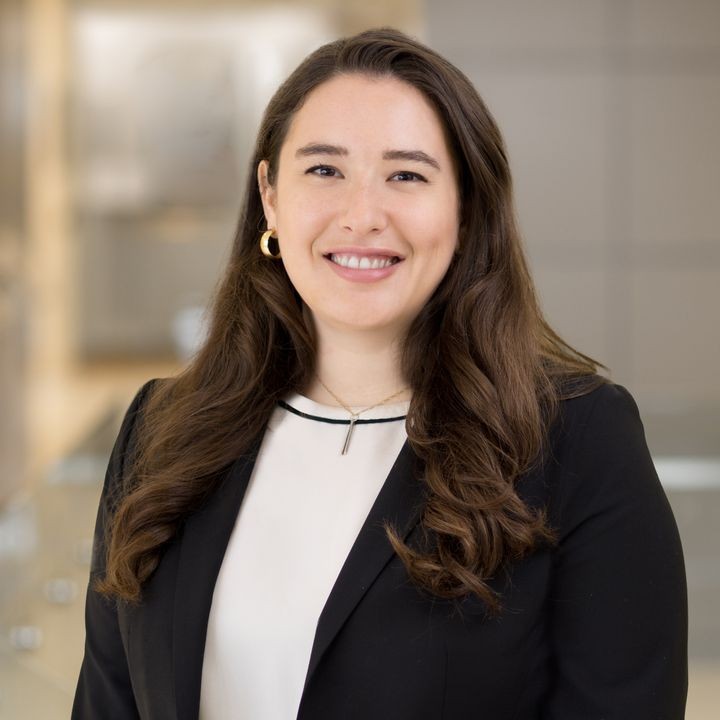New Year Will Bring Changes to Paid Leave in Illinois and Chicago
Client Alert | 6 min read | 12.01.23
Chicago and Illinois will soon join the growing number of states that require employers to provide employees with paid all-purpose leave, rather than, for example, leave that can only be used as paid sick or safe leave. The new laws are Chicago’s Paid Leave and Paid Sick and Safe Leave Ordinance (“Ordinance”) and the Illinois Paid Leave for All Workers Act (“Act”). Under the new Ordinance, Chicago-based employees may accrue twice as much paid leave (including, now, all-purpose leave and paid sick and safe leave) than under the City’s prior ordinance. And for the first time, Illinois employers outside of Chicago will be required to provide their employees with up to 40 hours of all-purpose paid leave each year.
Chicago’s City Council adopted the Chicago Paid Leave and Paid Sick and Safe Leave Ordinance, which will go into effect on December 31, 2023. Chicago currently requires employers to provide one hour of paid sick leave to employees for every 40 hours worked up to 40 hours in a 12-month period. The new Ordinance requires the provision of both Paid Sick and Safe Leave and all-purpose Paid Leave. Chicago employees will now be able to accrue at the rate of one hour for every 35 hours worked, and use up to 40 hours of Paid Leave, and the same amount of Paid Safe and Sick Leave, in a 12-month period. This change follows a similar new statewide law, the Illinois Paid Leave for All Workers Act, which will go into effect on January 1, 2024.
The new requirements in Illinois and Chicago are similar but not identical. Additionally, Cook County has a paid sick leave ordinance with different requirements. This is important because the Illinois Act explicitly states that it does not “apply to any employer that is covered by a municipal or county ordinance” in effect as of January 1, 2024 that requires employers to provide any form of paid leave. Under the Illinois Act employers “shall only comply with” any local paid leave ordinance enacted or amended after January 1, 2024 that provides benefits, rights, or remedies greater than or equal to those provided under the Act.
Chicago Paid Leave and Paid Sick and Safe Leave Ordinance
The Ordinance applies to all Chicago employers but the payment obligations differ depending on the employer’s size, as addressed further below. By its terms, the Ordinance only applies to employees who perform at least two hours of work in a two-week period while physically present in the City of Chicago.
All-purpose Paid Leave differs significantly from Paid Sick and Safe Leave. Because Paid Leave under the Chicago Ordinance can be taken for any purpose (unlike Paid Sick and Safe Leave), employers may not require documentation or a justification from an employee who takes the leave. Additional key provisions of the Ordinance include:
- As before, employees can still earn up to 40 hours of Paid Sick or Safe Leave in a 12-month period. Employees are now also eligible for up to 40 hours of all-purpose Paid Leave, which also accrues at a rate of one hour for every 35 hours worked.
- Employers may cap accrual at 40 hours per 12-month period for each type of leave.
- Employers may also choose to front load 40 hours of each type of leave to employees on the first day of their employment or their 12-month accrual period.
- Employees can carry over into the next 12-month period up to 16 hours of unused Paid Leave and up to 80 hours of unused Paid Sick and Safe Leave.
- The Ordinance requires that, unless otherwise provided in a collective bargaining agreement, and dependent on their size, employers must pay out unused all-purpose Paid Leave upon an employee’s separation from employment. Small employers (50 or fewer eligible employees) are exempt from this pay out requirement. For 2024 only, medium employers (between 51 and 100 eligible employees) only need to pay out 16 hours of all-purpose Paid Leave. After 2024, employers with 51 or more employees must pay out all unused Paid Leave.
- Violation of this Ordinance may expose employers to legal risks in a private action brought by an employee, including fines of up to $3,000 for each offense or damages of up to triple the amount of leave that was not provided, plus attorneys’ fees and costs.
Illinois Paid Leave for All Workers Act
The Illinois Act applies to employees working within the State of Illinois with a few notable exceptions. The Act does not apply to independent contractors, temporary university or college student employees, and employees covered by a bona fide collective bargaining agreement (“CBA”) unless otherwise provided therein. Specifically, the Act will not affect the terms of a CBA entered into prior to January 1, 2024. After January 1, 2024, the Act will apply unless the CBA explicitly waives its requirements. The Act is intended to have broad effect, however, and like Chicago’s new Ordinance, requires employers to provide such leave to employees that can be used for “any reason of the employee’s choosing.”
Significant additional provisions of the new Act include:
- Employees will accrue one hour of paid leave for every 40 hours worked for up to 40 hours in a 12-month period. This accrual rate is worthy of special attention, as it differs from the accrual rates under Chicago’s new Ordinance.
- As with Chicago’s Ordinance, employers are permitted to front load leave on the first day of employment or the first day of the 12-month period, rather than apply an accrual approach.
- If employers front-load the leave, they may enforce what are typically referred to as “use-it-or-lose-it” policies; otherwise, employees will be able to carry over unused leave.
- Unlike Chicago’s Ordinance, employers are not required under the Act to pay out unused leave at the end of employment.
- Violations of the Act could result in penalties of up to $2,500 for each offense to be deposited in a State treasury special fund, as well as damages, costs, attorneys’ and other fees in connection with a claim brought by the employee to the Illinois Department of Labor (“IDOL”).
The IDOL proposed regulations for the Act last month, which are subject to change and will not go into effect until after the Act is effective. These regulations, once effective, are expected to clarify as well as expand on the new requirements.
Additionally, the Board of Commissioners of Cook County previously proposed an amendment to the County’s earned sick leave ordinance, which is intended to bring the County’s ordinance more in line with Illinois state law. If enacted, the amendment will convert the County’s prior ordinance requiring employers to provide 40 hours of paid sick leave in a year, to one requiring 40 hours of all-purpose paid leave. On November 16, 2023, the County Board of Commissioners voted to defer the amendment.
With the enactment of the new Chicago Ordinance, employers should be aware that employees working in Chicago will accrue paid leave differently from employees working elsewhere in Illinois. Before the new year, employers should revisit their paid leave policies in order to ensure compliance with these new requirements, which also include posting notice of the policy in the workplace, distribution of annual notice, and paystub reporting.
Crowell & Moring will continue to monitor these laws and provide updates.
Contacts
Insights
Client Alert | 4 min read | 12.30.25
Are All Baby Products Related? TTAB Says “No”
The United States Trademark Trial and Appeal Board (TTAB or Board) recently issued a refreshed opinion in the trademark dispute Naterra International, Inc. v. Samah Bensalem, where Naterra International, Inc. petitioned the TTAB to cancel Samah Bensalem’s registration for the mark BABIES' MAGIC TEA based on its own BABY MAGIC mark. On remand from the U.S. Court of Appeals for the Federal Circuit, the TTAB reconsidered an expert’s opinion about relatedness of goods based on the concept of “umbrella branding” and found that the goods are unrelated and therefore again denied the petition for cancellation.
Client Alert | 6 min read | 12.30.25
Investor Advisory Committee Recommends SEC Disclosure Guidelines for Artificial Intelligence
Client Alert | 2 min read | 12.29.25
FYI – GAO Finds Key Person “Available” Despite Accepting Employment with a Different Company
Client Alert | 4 min read | 12.29.25
More Than Math: How Desjardins Recognizes AI Innovations as Patent-Eligible Technology





